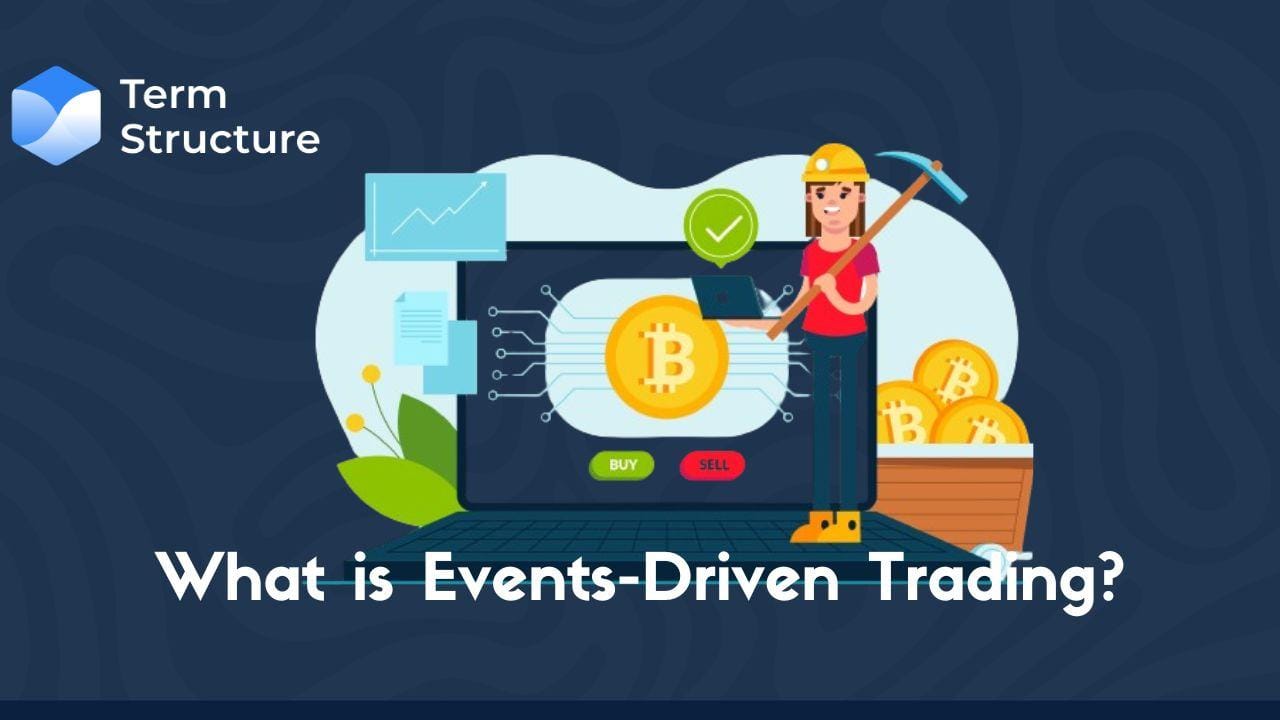What Is Events-Driven Trading?

Introduction
Event-driven trading is a strategy often used by major players like hedge funds and institutional investors. However, the open and continuous nature of the crypto market offers individual traders the chance to engage in event-driven trading and capitalize on market movements.
This article will delve into the event-driven approach, offering insights, examples, and practical tips on how to implement this strategy effectively. By understanding and applying event-driven trading, individual traders can enhance their trading efficiency and gain a competitive advantage in the market.
Exploring The Event-Driven Strategy
Event-driven strategies capitalize on the tendency of investors to react strongly to new information entering the market. Any piece of information with the potential to influence market dynamics is considered an 'event.'
In traditional finance, a stock may be mispriced in response to significant events like an earnings call, where lower-than-expected earnings could trigger a sell-off. Before such events, there is typically increased volatility as traders speculate on the impact of the impending news.
An event-driven strategy involves evaluating possible outcomes, anticipating news releases, and taking positions either before or after the information is disclosed. It also has to do with scenario analysis, assigning probabilities to outcomes and getting a sense of expected value. During this period of fluctuating prices, traders can identify opportunities to profit.
This strategy can be applied in the cryptocurrency market as well. For instance, the price surge in ETH preceding the Merge and Shapella upgrades. However, event-driven trading encounters two uncertainties:
1. Unpredictable Events: Instances such as the SEC's lawsuit against Binance or the classification of ADA, MATIC, and SOL as securities can cause sudden market downturns. Since these events are often unforeseen, quick action is essential to capitalize on them.
2. Market Response Uncertainty: While some events like blockchain upgrades are anticipated and generally bullish, others, such as the Fed's interest rate decisions, can lead to unpredictable market reactions. The direction of price movement following such events remains uncertain until they unfold.
Successful event-driven traders exhibit the ability to make rapid decisions and adapt to market shifts post-events. Preparation is crucial, involving an analysis of potential outcomes integrated into a trading plan.
Moreover, human psychology tends to emphasize the impact of negative news. Traders can leverage this bias by seeking long opportunities in response to overly bearish reactions to negative news and vice versa.
Advantages of Event-Driven Strategies in Crypto Trading.
Event-driven trading strategies offer numerous benefits for cryptocurrency traders. The agility to make swift decisions based on market events often leads to profitable trading prospects. Here are some advantages of employing event-driven strategies in cryptocurrency trading:
Trade In The Market's Lively Moments:
By employing event-driven strategies, traders can swiftly react to real-time market occurrences, ensuring they engage in trading activities only when the market is active and volatile. This approach minimizes time spent on charting and trading, enhancing efficiency and reducing the risk of significant losses. Moreover, it helps avoid unnecessary trades during dull or ranging market conditions, as traders focus their activity around significant events.
Gain A Competitive Advantage:
Traders adept at utilizing event-driven strategies can outperform those who don't employ such proactive approaches. While trading algorithms excel in reacting swiftly to news headlines and are efficient over short timeframes, human traders often excel in anticipating the long-term implications of events due to their ability to consider contextual factors.
Rich Academic Literature:
Event-driven investing has been extensively studied by academics, offering ample opportunities to translate research findings into actionable trading strategies.
Foster creativity:
Trading based on news or significant catalysts allows traders to exercise creativity in their analyses, diverging from rigid rules or technical setups. This flexible approach performs well across various market conditions, unlike technical strategies that may excel only in bull markets.
How to Implement Event-Driven Strategies.
To adopt an event-driven strategy in the crypto market, consider these steps:
1. Monitor narratives and news to compile a list of upcoming events.
2. Analyze known events in advance and incorporate them into your trading plans.
3. Use limit orders as part of your trading strategy.
4. Alternatively, if you prefer not to take a specific directional position, consider leveraging volatility through arbitrage.
Monitoring Narratives/News
- Follow accounts like tier10k on Twitter and enable notifications for timely updates.
- Join Telegram channels such as GAINS Crypto News, One Crypto Feed, and unfold for the latest news and developments.
- Stay informed on narratives through crypto-focused newsletters like an Ape’s Prologue and Crypto Narratives.
- Utilize resources like newsletters, you can subscribe to the Term Structure blog to unlock valuable insights.
Analyzing Known Events And Incorporating Into Your Trading Plan.
- Preparedness is crucial for known events; understand past market behavior to anticipate future trends. For example, macro events such as the Fed's interest rate decisions typically lead to specific price movements in major cryptocurrencies like Bitcoin and Ethereum.
- The 15-minute chart for ETH-USD below illustrates the potential challenges of trading events, as evidenced by significant price fluctuations preceding and following the Fed's interest rate announcement on June 14th.
Conclusion
In conclusion, event-driven trading, a strategy heavily used by institutional investors, is also accessible to individual traders in the crypto market due to its continuous nature. By monitoring market narratives, analyzing impactful events, and employing strategic tools like limit orders, traders can leverage swift decision-making to identify and exploit profitable opportunities to effectively navigate market uncertainties and achieve trading success.

